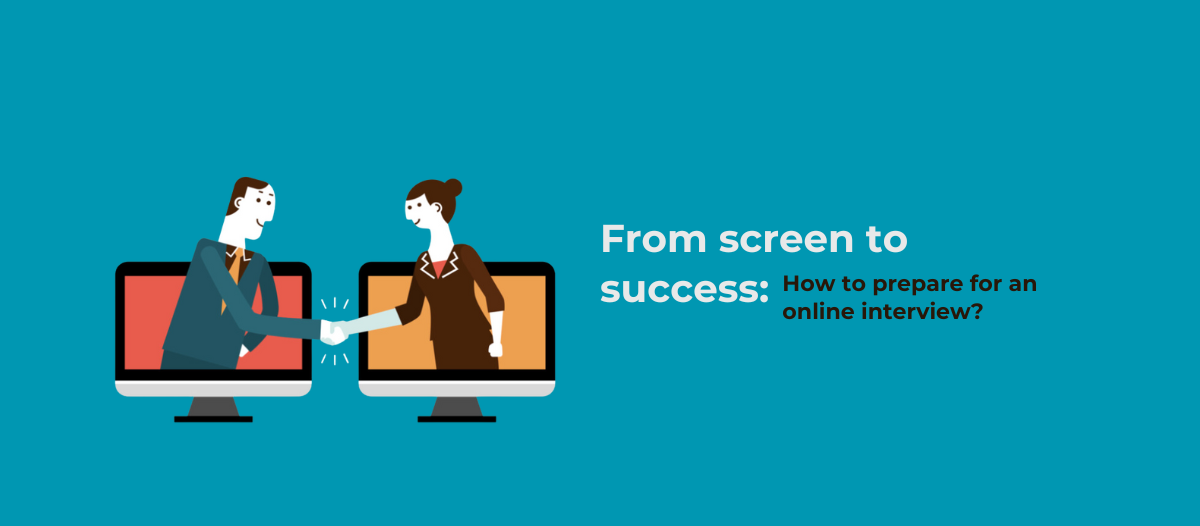8 Tips for Successful Online Video Interview
Interviewing can be one of the most nerve-wracking parts of the job search process. In the modern job market, online interviews have become a common practice. This shift has removed the need for job seekers to travel to interview locations, allowing them to connect from virtually anywhere. This flexibility also extends to applying for jobs in distant locations, with the possibility of relocating only after securing the position. Employers and HR managers equally benefit from this format, as it enables them to conduct interviews and hire talent from across the globe, irrespective of time zones.
Preparing for an Online Job Interview
There are fundamental steps you can take to ensure a successful online interview.
1. Ensure Your Technology is Ready
Before your interview, it's crucial to confirm that all your devices are in working order. Check that your computer, microphone, camera, headphones, and internet connection are functioning properly. Install any necessary software, such as Zoom, Microsoft Teams, or Google Meet, ahead of time and familiarize yourself with its features. Running a quick test call can help you feel more confident in your setup.
If technical issues arise, promptly inform your interviewer. Most HR professionals and employers will understand and may reschedule the interview if necessary.
2. Choose an Appropriate Location
Although remote interviews offer flexibility, certain environments are more conducive to a professional interview than others. Rather than joining from a noisy or distracting location, opt for a quiet, well-lit space like a home office, or a co-working place. Your background should be tidy and non-distracting. While a completely bare setting can feel sterile, a cluttered or overly flashy backdrop can be equally distracting. A few neutral elements like a bookshelf or a plant are acceptable, but avoid anything that could detract from your professionalism. Additionally, position your light source in front of you to avoid casting shadows on your face.
3. Prepare Your Talking Points
Interviewers often ask about your knowledge of the company, so be ready to briefly discuss their mission, values, and key projects. This shows that you’ve done your homework and are genuinely interested in the company.
Equally important is your own story. Instead of scripting your answers, prepare to talk naturally about your experience, achievements, and the skills you bring to the table.
4. Plan Your Outfit in Advance
It's essential to dress appropriately for the interview, even if it's conducted remotely. Choose an outfit that aligns with the company’s culture and the position you're applying for. In traditional industries like finance, a more formal dress code may be expected, whereas creative fields might allow for a bit more flexibility. Regardless of the field, ensure your appearance is clean and well-groomed.
5. Maintain a Professional Demeanor
During the interview, convey confidence through your posture, eye contact, and clear communication. Even in a virtual setting, maintaining eye contact by looking at the camera is crucial. Speak clearly and use gestures sparingly to emphasize your points. The key is to be authentic—trying to be someone you're not can be easily detected and may not work in your favor long-term. In an online interview, it’s important to show that you’re actively engaged in the conversation. Practice active listening by nodding your head in agreement and responding thoughtfully. Take notes with a pen and paper rather than typing on your computer, as the sound of typing can be distracting. This also shows that you’re taking the conversation seriously and are genuinely interested in what’s being discussed.
6. Anticipate Tough Questions
Prepare concise, thoughtful answers to potential interview questions, especially those that might be challenging. Be ready to discuss your motivations for wanting the job and your long-term career goals. Additionally, think about how you would respond to more unusual or uncomfortable questions, like describing your biggest weakness or your most difficult decision.
While it’s important to be honest, avoid sharing overly personal information. If discussing past difficulties, try to frame them in a positive light by highlighting what you learned or how you grew from the experience.
7. Prepare Questions for Your Interviewer
Remember, interviews are a two-way street. Prepare a set of questions to ask your potential employer. This not only demonstrates your interest but also helps you gain deeper insights into the role, the team, and the company culture. By being well-prepared, you’ll be better equipped to determine if the position is the right fit for you.
8. Follow Up After the Interview
After your interview, don’t let the conversation end once you’ve logged off. Following up with a thank-you email is a professional courtesy that can set you apart from other candidates. Express your gratitude for the opportunity, briefly reiterate your enthusiasm for the role, and mention something specific from the interview that you found particularly engaging. Additionally, make sure to monitor your email for updates or further instructions from the recruiter.
Summary
Online interviews are becoming a standard part of the hiring process, and knowing how to navigate them successfully is crucial for any job seeker. By preparing in advance, dressing appropriately, setting up a professional background, and staying engaged throughout the conversation, you can make a great impression from start to finish. Remember, just because it’s virtual doesn’t mean it’s less important—treat it with the same level of seriousness as you would an in-person interview. With these tips, you’ll be well on your way to securing your next job offer.
Author:



